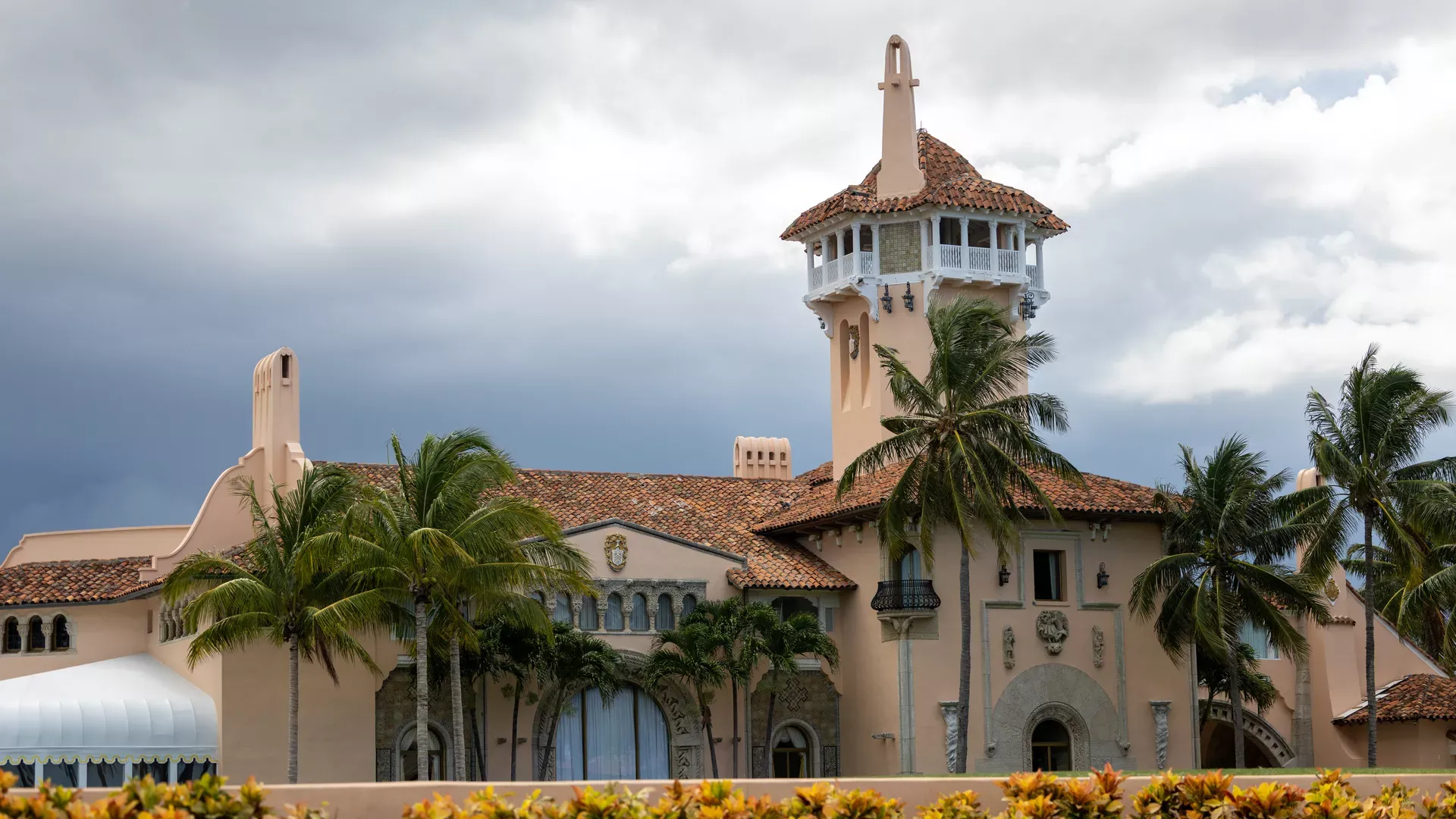DOJ Releases Redacted Mar-a-Lago Affidavit
The US Justice Dept. (DOJ) on Fri. released a redacted version of the affidavit used to justify the Aug. 8 search of former Pres. Donald Trump's Mar-a-Lago estate in Florida.

Facts
- The US Justice Dept. (DOJ) on Fri. released a redacted version of the affidavit used to justify the Aug. 8 search of former Pres. Donald Trump's Mar-a-Lago estate in Florida.
- The document, written by an unnamed FBI agent, says they had cause to believe Trump was still holding documents pertaining to "National Defense Information" and others "subject to record retention requirements."
- Coming after Trump had delivered "15 boxes of records" - including "highly classified documents" - to the National Archives in Jan., the affidavit stated that the FBI wished to uncover whether any more sensitive material was being kept at Trump's home.
- Within a heavily redacted page of the affidavit, the FBI also cited a CBS Miami story from Jan. of last year titled "Moving trucks spotted at Mar-a-Lago," though no further information is provided.
- The affidavit claimed that the FBI believed parts of the estate, such as the storage room, residential suite, Pine Hall, and other spaces, potentially held national defense information. It added that there was "probable cause" to believe there's evidence of obstruction.
- Nearly half of the 38-page document is redacted, with the FBI citing privacy reasons due to a "significant number of civilian witnesses" interviewed throughout the investigation leading up to the search.
Sources: New York Post, ABC, Washington Examiner, CBS, Axios, and Washington Post.
Narratives
- Republican narrative, as provided by The Federalist. The American public wanted to see the affidavit because of the unprecedented nature of the FBI raiding a former president's home, but all the DOJ did was show us pages of blacked-out lines. As for any new information, we now know the FBI combed through every inch of Trump's private residence and thought moving trucks were suspicious.
- Democratic narrative, as provided by The New York Times. Given that these documents are almost always left sealed until charges are filed, the fact that any of the affidavit was publicized is surprising. Though the DOJ justifiably redacted the names of witnesses to protect them from potential retaliation, the affidavit still provided damning evidence against Trump.






